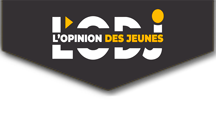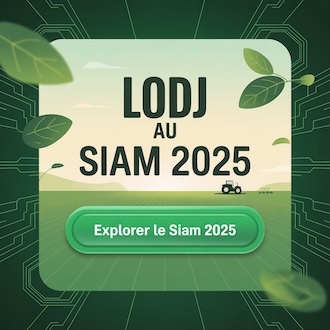From Lab to Game: Moroccan Academic Innovation in XR with Dr. Izouaouen
Question: How would you assess the current state of academic research in Morocco in the fields of virtual, augmented, and mixed reality, especially as it relates to gaming?
M. ZAKARIA IZOUAOUEN : The VR/AR academic landscape in Morocco is dynamic and promising, though still maturing. Across our universities, there's a clear surge in interest and talent. We're seeing research projects move beyond pure theory into tangible applications that explore uses in education, cultural heritage, and healthcare. My own recent work at the Faculty of Sciences in Rabat, which involved developing an educational augmented reality application, "ARCampus" link:http://bit.ly/ARCampus, is just one example of this trend.
This prototype not only demonstrates the potential of AR in educational settings but also serves as a foundation for future developments in gaming and interactive media, it uses advanced mathematical models to create immersive experiences that can be adapted for various educational contexts, combining serious gaming with real-world applications.
Question: What are the main research priorities or major innovations emerging today in mathematical development applied to VR/AR in Morocco?
M. ZAKARIA IZOUAOUEN : The research priorities in Morocco mirror global trends but are adapted to our context. A major focus is on the mathematical and algorithmic foundations needed to create truly seamless and interactive virtual experiences. This isn't just about graphics; it's about storytelling, user interaction, and the underlying data structures that make these experiences possible.
Another critical area of innovation is addressing the skills gap, particularly the lack of specialized 3D designer profiles who can translate developer visions into production-ready 3D models. This has been a significant bottleneck in our local ecosystem. However, we're seeing promising developments with the integration of Generative AI platforms like CivitAI, Meshy and other emerging tools that can bridge this gap. These AI-powered solutions are enabling developers to rapidly prototype and generate high-quality 3D assets, effectively democratizing 3D content creation.
Furthermore, there's growing emphasis on developing culturally relevant content frameworks that can preserve and showcase Moroccan heritage through immersive technologies.
Question: Based on your experience, what are the main obstacles Moroccan researchers face in turning their work into concrete applications within the gaming industry?
M. ZAKARIA IZOUAOUEN : Researchers in Morocco face several systemic challenges common to emerging tech sectors. A primary hurdle is bridging the cultural and operational gap between academic research cycles and the rapid, product-focused pace of the private industry, especially in gaming. Securing consistent funding and access to the latest high-end hardware are persistent issues that can slow the transition from prototype to product. Furthermore, there's a national need to cultivate more interdisciplinary teams. A successful game requires not just engineers with skills in Unity 3D or Unreal Engine, but also artists, storytellers, and UX designers, and building these complete teams is a crucial next step.
Question: Do you have examples of successful collaborations between research laboratories, universities, and Moroccan companies on XR or gaming projects? What are your key takeaways?
M. ZAKARIA IZOUAOUEN : Collaboration is beginning to take root, often starting within the universities themselves, which act as powerful incubators for innovation and talent. A prime example is the "ARCampus" project developed at the IPSS Lab (Intelligent Processing and Security of Systems, UM5R) - a mobile augmented reality application specifically designed to accompany medical students throughout their learning journey.
ARCampus transforms the way complex medical concepts are visualized and assimilated, making learning more immersive, interactive, and engaging. The application allows students to explore human anatomy in 3D, practice first aid procedures through realistic simulations, and discover pathologies interactively. What makes this particularly significant is how it bridges the gap between serious educational applications and gaming methodologies - using game-like engagement principles to enhance medical education.
This project exemplifies the kind of interdisciplinary collaboration that's emerging in Morocco, combining expertise in computer science, medical education, and user experience design. The key takeaway is that the potential is immense, but these innovations need platforms to reach broader markets. This is precisely why initiatives like the Hackathon Medical INNOVA StartUp at the 2024 Morocco Medical Expo are critical; they create a marketplace connecting academic talent with industry and investors, which is the catalyst needed to turn prototypes like ARCampus into globally competitive products. link: https://www.lodj.ma/Les-resultats-du-Hackathon-Medical-Innova-Startup-2024_a100600.html
Question: What advice would you give to young Moroccan researchers or students who wish to specialize in VR/AR research applied to gaming and digital innovation?
M. ZAKARIA IZOUAOUEN : For anyone looking to enter the gaming industry, the most important advice is to adopt a broad perspective rather than focusing on a single specialization. It’s vital to cultivate a multidisciplinary skill set that integrates computer science, applied mathematics, and elements of design and storytelling. Gaining practical, hands-on experience is essential; pursue internships and projects that involve real-world applications, as this will enhance your understanding and capabilities in various aspects of game development, from programming to art and user experience. Embrace collaboration across disciplines to truly thrive in this dynamic field.
Beyond technical skills, I strongly encourage students to actively participate in industry events like the Morocco Gaming Expo, which runs from July 2-6, 2025, at the Prince Moulay Abdellah Sports Complex in Rabat. This event, organized by the Ministry of Youth, Culture and Communication, represents exactly the kind of platform where academic research meets industry needs. The expo features exhibitions showcasing the entire gaming ecosystem, conferences with national and international experts, and competitive tournaments.
For aspiring researchers, such events offer invaluable networking opportunities, exposure to industry trends, and the chance to present prototypes to potential collaborators and investors. The expo's conference platform, in particular, provides insights into the latest advances and perspectives in the gaming industry, which can directly inform research directions.
Finally, focus on developing strong soft skills—teamwork, creative problem-solving, and clear communication. Technology alone doesn't create great experiences; people do. The gaming industry thrives on collaboration, and events like the Morocco Gaming Expo demonstrate how bringing together diverse stakeholders—from developers to researchers to gamers—creates the innovation ecosystem that Morocco needs to compete globally.
M. ZAKARIA IZOUAOUEN : The VR/AR academic landscape in Morocco is dynamic and promising, though still maturing. Across our universities, there's a clear surge in interest and talent. We're seeing research projects move beyond pure theory into tangible applications that explore uses in education, cultural heritage, and healthcare. My own recent work at the Faculty of Sciences in Rabat, which involved developing an educational augmented reality application, "ARCampus" link:http://bit.ly/ARCampus, is just one example of this trend.
This prototype not only demonstrates the potential of AR in educational settings but also serves as a foundation for future developments in gaming and interactive media, it uses advanced mathematical models to create immersive experiences that can be adapted for various educational contexts, combining serious gaming with real-world applications.
Question: What are the main research priorities or major innovations emerging today in mathematical development applied to VR/AR in Morocco?
M. ZAKARIA IZOUAOUEN : The research priorities in Morocco mirror global trends but are adapted to our context. A major focus is on the mathematical and algorithmic foundations needed to create truly seamless and interactive virtual experiences. This isn't just about graphics; it's about storytelling, user interaction, and the underlying data structures that make these experiences possible.
Another critical area of innovation is addressing the skills gap, particularly the lack of specialized 3D designer profiles who can translate developer visions into production-ready 3D models. This has been a significant bottleneck in our local ecosystem. However, we're seeing promising developments with the integration of Generative AI platforms like CivitAI, Meshy and other emerging tools that can bridge this gap. These AI-powered solutions are enabling developers to rapidly prototype and generate high-quality 3D assets, effectively democratizing 3D content creation.
Furthermore, there's growing emphasis on developing culturally relevant content frameworks that can preserve and showcase Moroccan heritage through immersive technologies.
Question: Based on your experience, what are the main obstacles Moroccan researchers face in turning their work into concrete applications within the gaming industry?
M. ZAKARIA IZOUAOUEN : Researchers in Morocco face several systemic challenges common to emerging tech sectors. A primary hurdle is bridging the cultural and operational gap between academic research cycles and the rapid, product-focused pace of the private industry, especially in gaming. Securing consistent funding and access to the latest high-end hardware are persistent issues that can slow the transition from prototype to product. Furthermore, there's a national need to cultivate more interdisciplinary teams. A successful game requires not just engineers with skills in Unity 3D or Unreal Engine, but also artists, storytellers, and UX designers, and building these complete teams is a crucial next step.
Question: Do you have examples of successful collaborations between research laboratories, universities, and Moroccan companies on XR or gaming projects? What are your key takeaways?
M. ZAKARIA IZOUAOUEN : Collaboration is beginning to take root, often starting within the universities themselves, which act as powerful incubators for innovation and talent. A prime example is the "ARCampus" project developed at the IPSS Lab (Intelligent Processing and Security of Systems, UM5R) - a mobile augmented reality application specifically designed to accompany medical students throughout their learning journey.
ARCampus transforms the way complex medical concepts are visualized and assimilated, making learning more immersive, interactive, and engaging. The application allows students to explore human anatomy in 3D, practice first aid procedures through realistic simulations, and discover pathologies interactively. What makes this particularly significant is how it bridges the gap between serious educational applications and gaming methodologies - using game-like engagement principles to enhance medical education.
This project exemplifies the kind of interdisciplinary collaboration that's emerging in Morocco, combining expertise in computer science, medical education, and user experience design. The key takeaway is that the potential is immense, but these innovations need platforms to reach broader markets. This is precisely why initiatives like the Hackathon Medical INNOVA StartUp at the 2024 Morocco Medical Expo are critical; they create a marketplace connecting academic talent with industry and investors, which is the catalyst needed to turn prototypes like ARCampus into globally competitive products. link: https://www.lodj.ma/Les-resultats-du-Hackathon-Medical-Innova-Startup-2024_a100600.html
Question: What advice would you give to young Moroccan researchers or students who wish to specialize in VR/AR research applied to gaming and digital innovation?
M. ZAKARIA IZOUAOUEN : For anyone looking to enter the gaming industry, the most important advice is to adopt a broad perspective rather than focusing on a single specialization. It’s vital to cultivate a multidisciplinary skill set that integrates computer science, applied mathematics, and elements of design and storytelling. Gaining practical, hands-on experience is essential; pursue internships and projects that involve real-world applications, as this will enhance your understanding and capabilities in various aspects of game development, from programming to art and user experience. Embrace collaboration across disciplines to truly thrive in this dynamic field.
Beyond technical skills, I strongly encourage students to actively participate in industry events like the Morocco Gaming Expo, which runs from July 2-6, 2025, at the Prince Moulay Abdellah Sports Complex in Rabat. This event, organized by the Ministry of Youth, Culture and Communication, represents exactly the kind of platform where academic research meets industry needs. The expo features exhibitions showcasing the entire gaming ecosystem, conferences with national and international experts, and competitive tournaments.
For aspiring researchers, such events offer invaluable networking opportunities, exposure to industry trends, and the chance to present prototypes to potential collaborators and investors. The expo's conference platform, in particular, provides insights into the latest advances and perspectives in the gaming industry, which can directly inform research directions.
Finally, focus on developing strong soft skills—teamwork, creative problem-solving, and clear communication. Technology alone doesn't create great experiences; people do. The gaming industry thrives on collaboration, and events like the Morocco Gaming Expo demonstrate how bringing together diverse stakeholders—from developers to researchers to gamers—creates the innovation ecosystem that Morocco needs to compete globally.












 L'accueil
L'accueil
































































